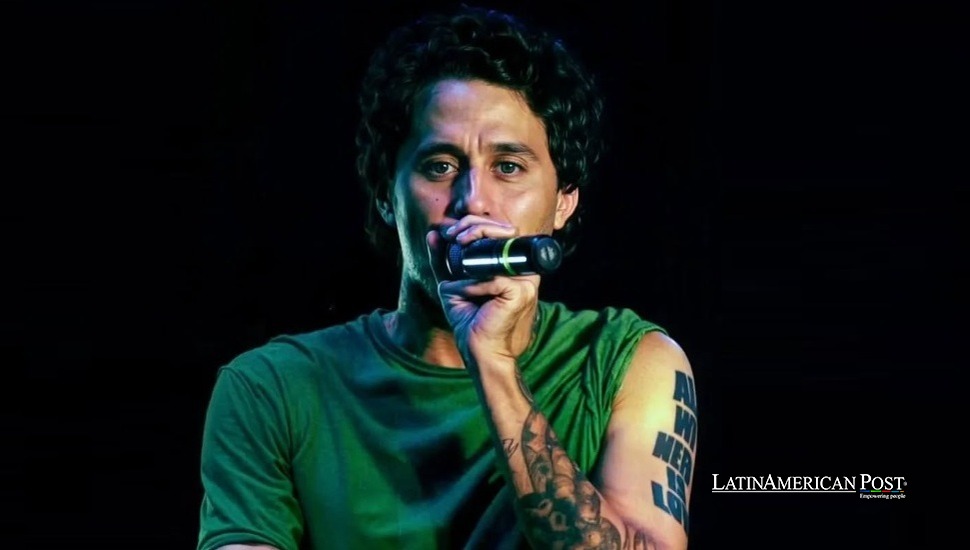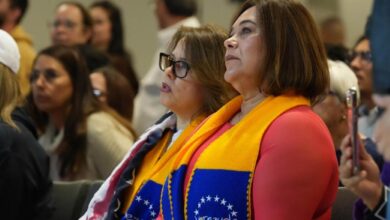Venezuela Still Haunted by the Tragic Death of Canserbero

The 2015 killing of Venezuelan rapper Canserbero, previously praised as the top Spanish-language rapper by Rolling Stone, has come back into the spotlight with recent convictions showing a tangled web of lies. This tragedy shocked the rap community and also exposed deep corruption in Venezuela’s justice system.
A Murder Disguised as Suicide
On January 19, 2015, the Venezuelan rap scene was rocked by the death of Canserbero, whose real name was Tirone González. Initially ruled a murder-suicide, authorities claimed the 26-year-old had stabbed his friend Carlos Molnar in a fight before leaping from a 10th-floor window. However, years of suspicion and speculation culminated in December 2023 when Natalia Améstica, Canserbero’s manager, confessed to orchestrating the gruesome crime.
Améstica admitted to drugging both Canserbero and her boyfriend, Molnar, before carrying out the attacks. Enraged by Canserbero’s intention to end their professional relationship, she stabbed Molnar and then turned her weapon on the rapper. Her brother Guillermo and officers from Venezuela’s intelligence agency, Sebin, assisted in staging the crime scene to look like a murder-suicide.
The careful cover-up was full of betrayals, from a forensic expert asking for bribes to a music producer connected to changing evidence. These chilling details only add to the tragedy around one of Latin America’s very influential rappers.
The Cover-Up Conspirators
Natalia and Guillermo Améstica’s February sentencing to 25 years was just the beginning. Recent trials have led to the convictions of others complicit in the cover-up, including a forensic expert, three Sebin officers, and Marcos Pratolongo, a music impresario tied to Canserbero’s career.
The Sebin officers’ role in tampering with the crime scene was particularly egregious. They altered evidence, further stabbed Molnar’s body, and orchestrated the rapper’s fall from the window to stage the false narrative. Guillermo admitted that a forensic detective had become suspicious of the inconsistencies but agreed to help conceal the truth in exchange for a $10,000 bribe.
Pratolongo, a trusted figure in Canserbero’s professional life, was found guilty of complicity. He had the rapper’s apartment keys and helped to disappear critical evidence, which connects him to the sinister plan for Canserbero.
A Legacy Tarnished by Tragedy
Canserbero was more than a rapper: he represented Venezuela’s disenfranchised young people. His songs addressed inequality, depression, and his community. His death took away not only his incredible talent but also highlighted how fragile trust is in Venezuela’s art community.
Uncovering the cover-up angered people and led to deep thinking within the country. Fans and artists grieve for the man whose voice challenged those in power, while critics ask for broad changes to stop future wrongs. The case showed personal betrayals and the widespread corruption affecting Venezuela’s institutions.
Justice and the Quest for Closure
The punishment of those linked to Canserbero’s murder brings a little justice, but his family and fans still feel hurt. Confessions, bribes, and fake crime scenes clearly show how quickly justice slips away.
In Venezuela, the tragedy points to the necessity of institutional reform. The courts need to be trusted so that celebrities aren’t betrayed and killed. Fans celebrate Canserbero’s life, and music reminds them of and urges accountability in a nation with such illnesses.
Also Read: Dreams and Struggles of Venezuelan Youth Through Music
In his art, Canserbero is a constant mascot of courage. Yet, his untimely death is a haunting reminder of the work still needed to build a safer and more just society.





